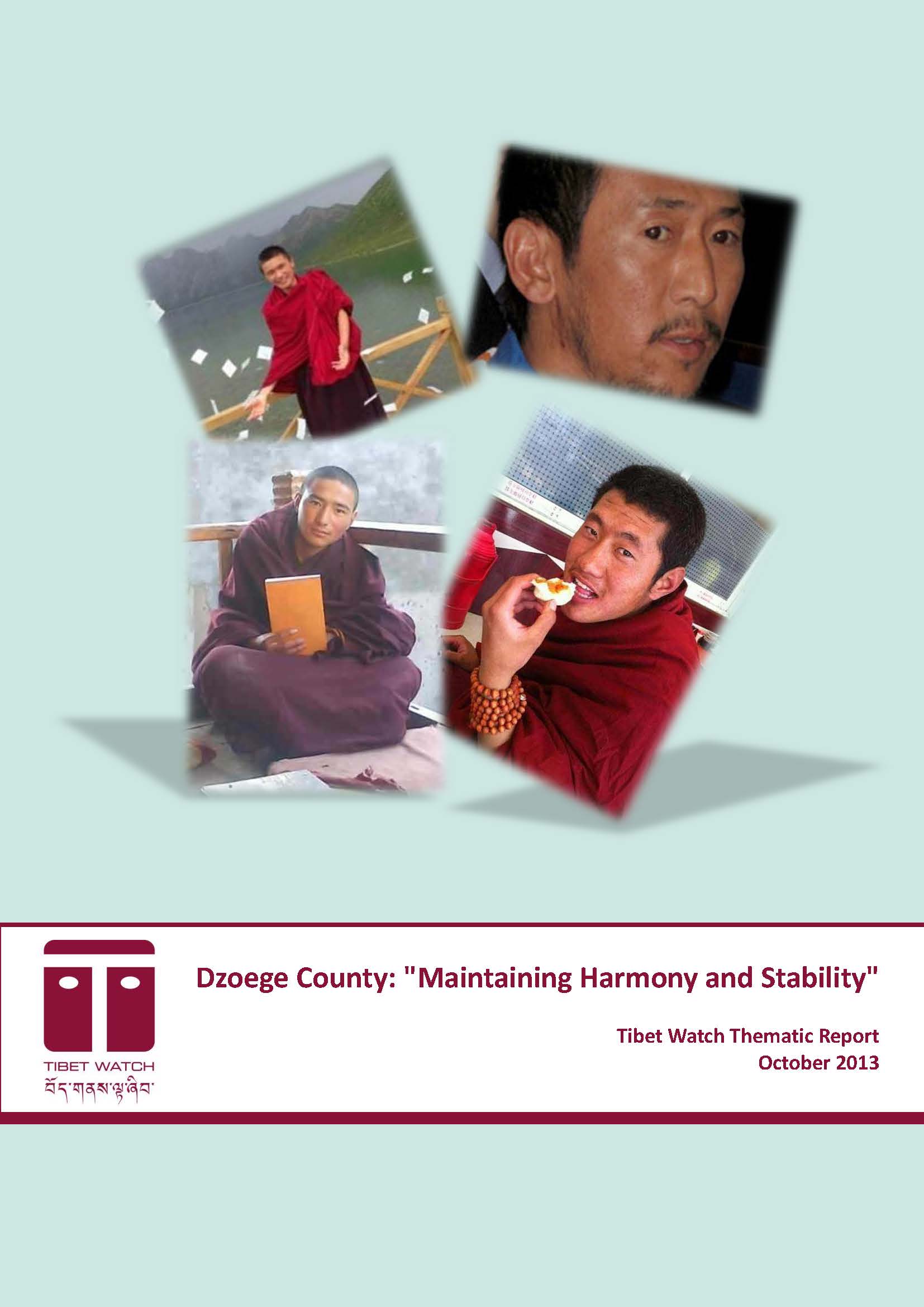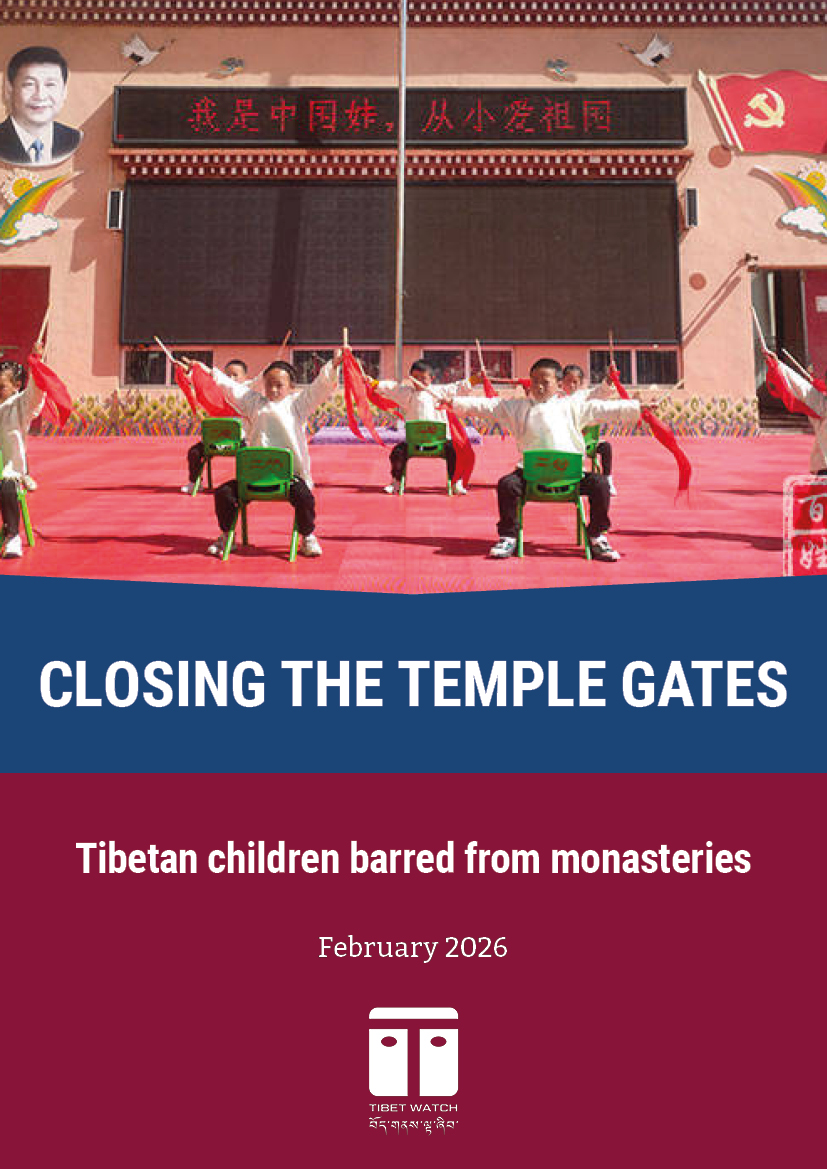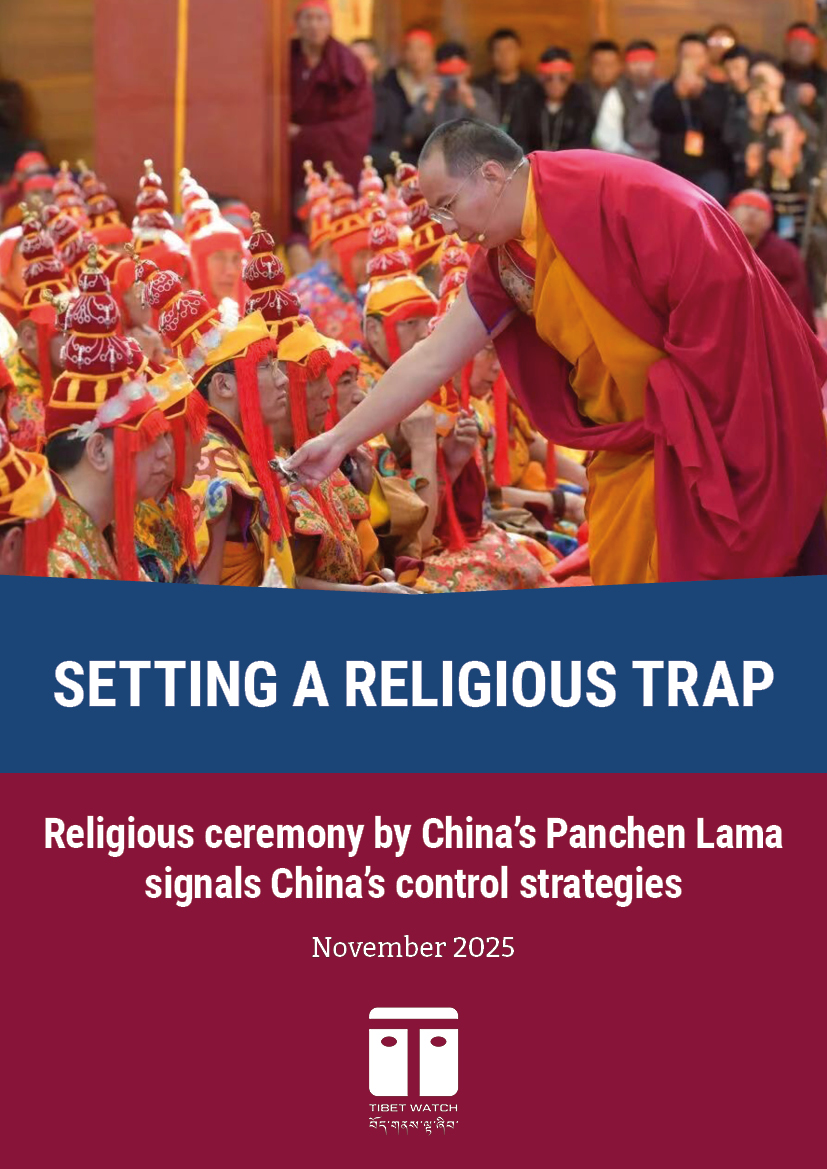
Background
Since 2009, over 125 Tibetans have set themselves on fire in self-immolation protests against China’s occupation of Tibet. Nine of these have taken place in Dzoege (Ch: Zoige/Ruo’ergai) County, Ngaba (Ch: Aba) Tibetan and Qiang Autonomous Prefecture, Sichuan Province.
The protests in Dzoege County have all taken place within the last couple of years. In 2013, this situation led to the authorities issuing formal notices warning the population that any future self-immolations would result in severe reprisals, not only against the friends and relatives of the protestor but also against their whole community. Punishing a group for the actions of an individual is known as collective punishment and it is illegal under international law.
The introduction of collective punishments in Dzoege County followed reports that one of Sichuan Province’s most senior officials had declared during a conference in Beijing that he would resign if any more self-immolation protests happened in his province. Regardless of whether or not it was truly voluntary, a resignation at such a senior level would have ramifications for many people further down the chain, with more junior staff losing their political backing and, potentially, even their jobs. Officials at all levels across the province immediately started drafting and implementing anti self-immolation measures.
There have indeed been further self-immolations in Dzoege County, including one immediately after the reported declaration. The authorities first tried to claim her death was a simple suicide rather than a protest. When that proved unsuccessful they charged her husband with murder and sentenced him to death. Local people believe the authorities have deliberately lied about this case out of concern about the personal consequences of continuing self-immolations.


